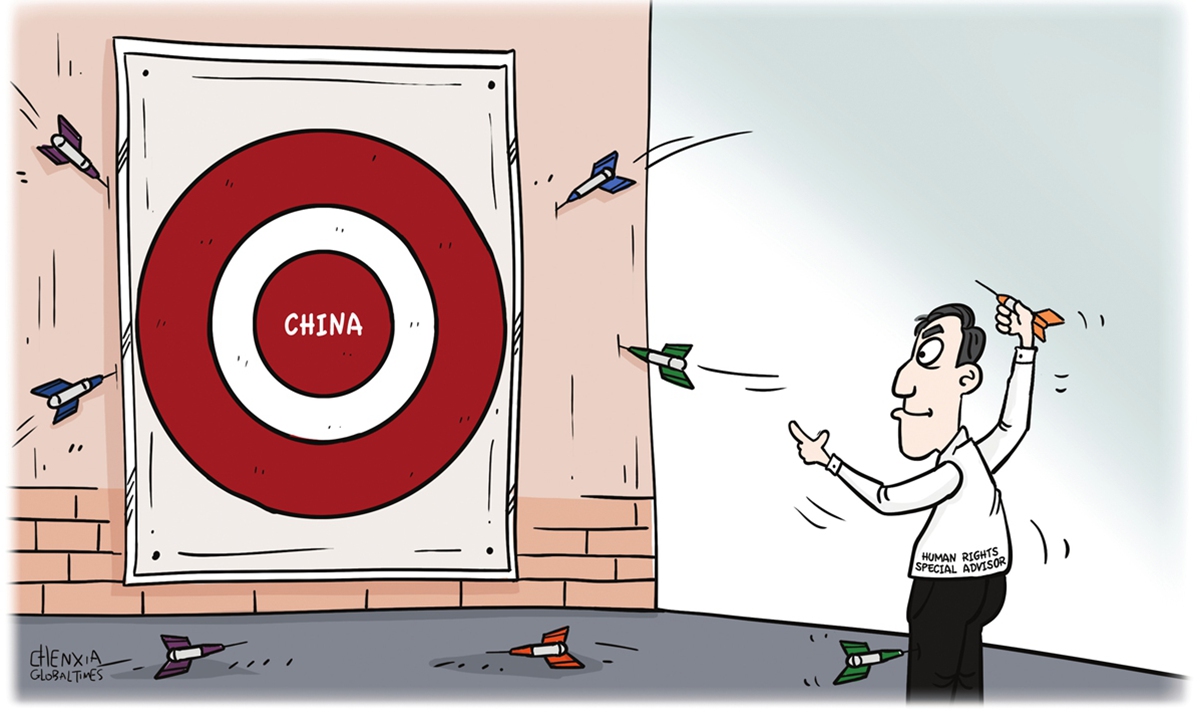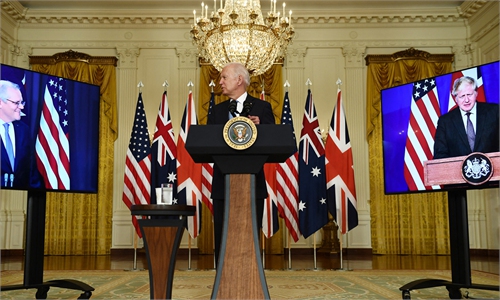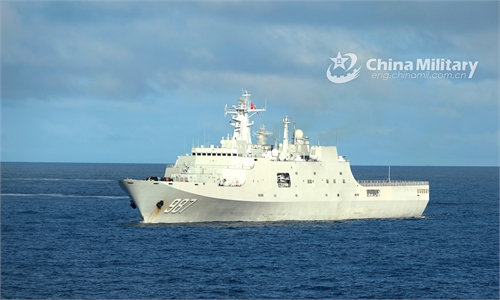
Illustration: Chen Xia/GT
When it turns out that Australia is staging a self-directed farce with its "laser attack" allegation against China, Japan has chosen to stand on the erroneous side of the incident.
According to Australian media, Japan's Ambassador to Australia Yamagami Shingo openly backed Australia in its latest confrontation with China and said his country was "fully behind Australia on this matter."
The remarks came even after China refuted Australia's hype that a Chinese People's Liberation Army Navy vessel pointed a laser at its patrol aircraft and revealed the fact that the Australian patrol aircraft operated near the Chinese vessel flotilla with a minimal distance of only 4 kilometers and dropped sonobuoys around Chinese ships. It was only after Australia made these provocations that China carried out safe, standard and professional actions.
With the Japanese envoy offering one of the first public expressions of support to Australia since the incident, Japan has chosen geopolitics over truth and justice. Da Zhigang, director of the Institute of Northeast Asian Studies at Heilongjiang Provincial Academy of Social Sciences, told the Global Times that Japan wants to tag China as the provocateur of the "laser attack" incident as a way to smear China.
"The Japanese ambassador is sending a message to the international community that China exacerbated regional tension first. By doing so, Japan aims to inject firmness to Australia's anti-China crusade and pour oil on the China-Australia flame. This is exacerbating regional tension," said Da.
This time, a Japanese diplomat voiced Japan's support even ahead of his US counterpart. Da believes that either it is because the US didn't think the incident was relevant to its own interests, or that the US is too busy grappling with what's happening in Ukraine. But since Japan acts as a microphone of the US on many occasions, Japan's stance reflects that of the US. Japan's intention to smear China and stir up regional tension fits perfectly into the US' Indo-Pacific playbook.
As vanguards of the US' China containment strategy, Japan and Australia have moved closer in recent years. Both have taken part in the same multilateral military exercises, are members of the Quadrilateral Security Dialogue, and have become quasi-allies after signing the Reciprocal Access Agreement in January. The subtext of all these crafty maneuvers is: China. The so-called circle of values comprising these "like-minded" countries is nothing but a gang of interests.
The words of Shingo reflect a hawkish, bellicose and containment mentality. This is not the first time that he rushes to the fore. In March last year, ahead of the first leaders' meeting of Quad, the diplomat said Canberra is "not walking alone" in dealing with an increasingly aggressive China as Japan has experienced 10 years ago. In July, he spoke up again, applauding the way Australia has resisted "economic pressure" from China. He even went further by saying countries like Australia, Japan and the US "have to get together" to address challenges caused by China.
Da told the Global Times that deliberately uttering hawkish statements against a third country goes beyond the responsibility and norms of a diplomat.
Japan's China containment mentality has become normality. Japan deeply knows that it is not able to compete with China alone, so it pins high hopes on the US and its allies. The deep intertwined economic interests between China and Japan and their common interests in multilateral frameworks such as the Regional Comprehensive Economic Partnership make Japan walk a tightrope - it doesn't want to come to an open break with China, so it voices out by taking advantage of the conflicts between China and other countries. Such calculating moves may bring Japan some temporary petty geopolitical interests, but potentially risk future ties with China.


